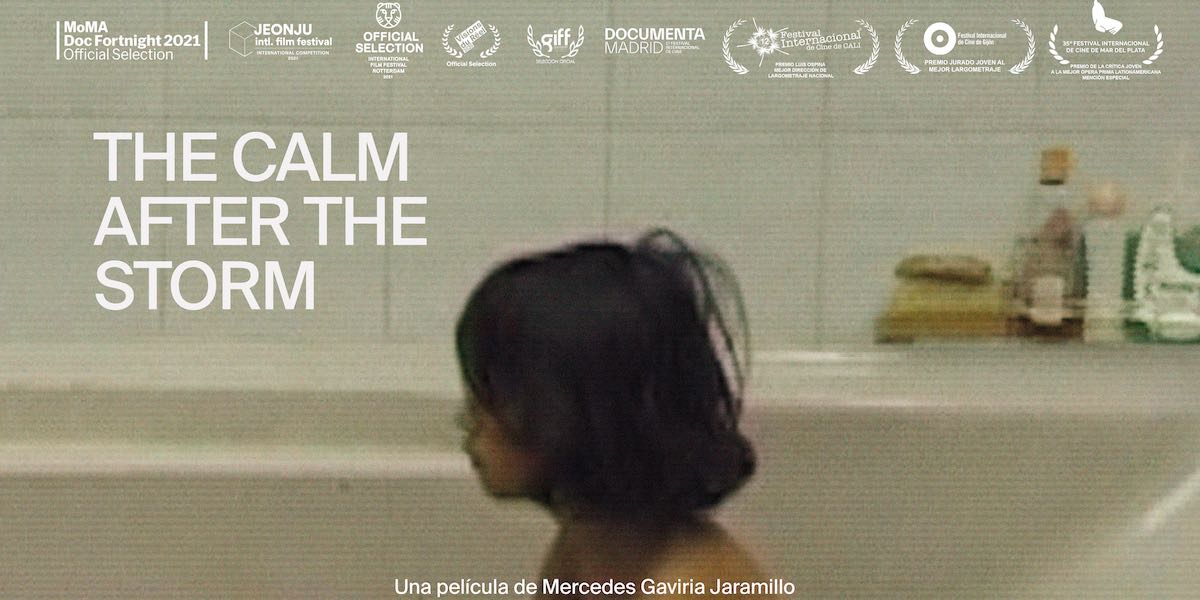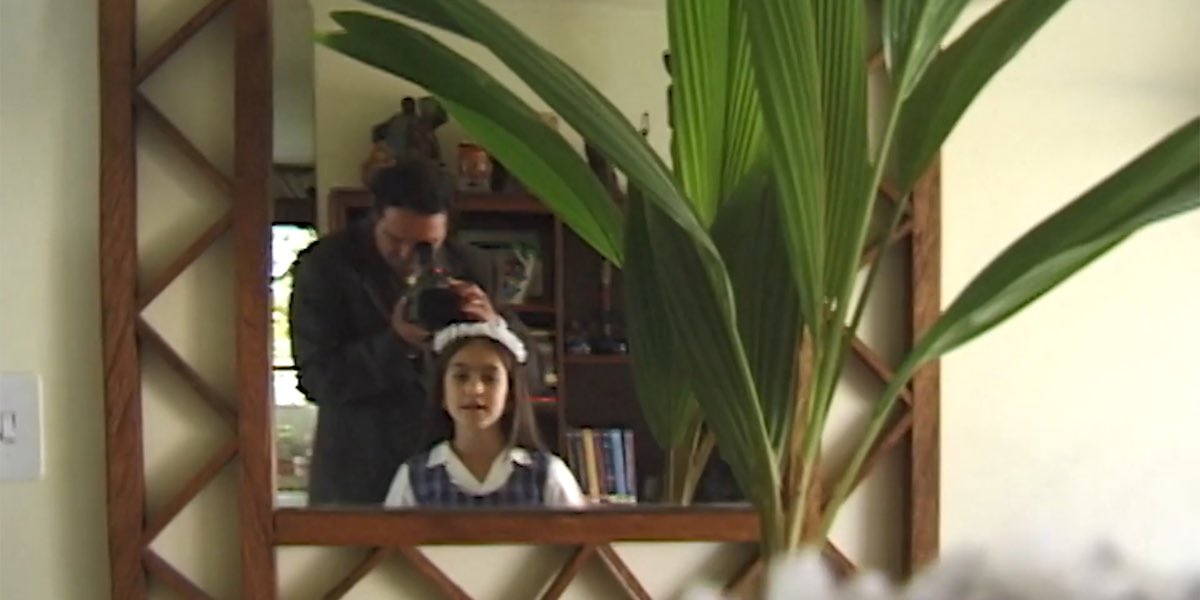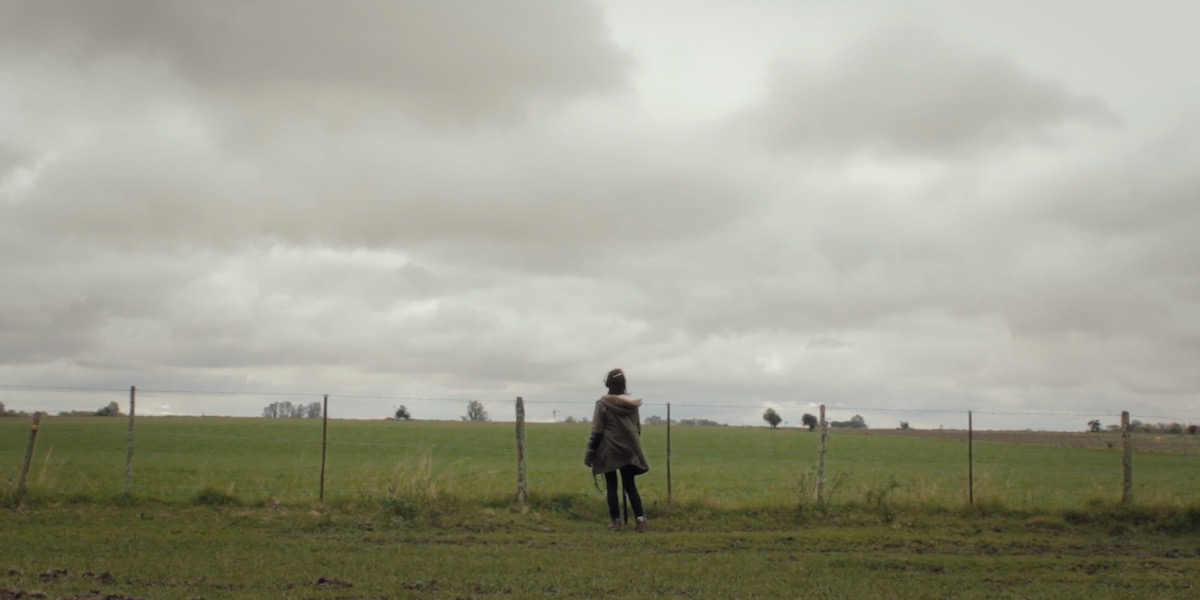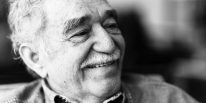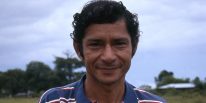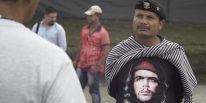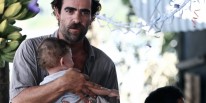Spanish with English subtitles
After studying abroad, Mercedes returns to her native city to join her father, acclaimed filmmaker and writer Victor Gaviria (The Rose Seller), in the shooting of his next film. He is a director who has filmed his family throughout the years.
In the encounter of both filmmakers’ ways of looking, her mother’s silence, and her brother’s stubbornness, Mercedes embraces the time they shared in their home videos and her family’s endless contradictions in order to find her own beginning.
As a result, the film works as a private diary that goes beyond familial conflicts to question the place of women in the film world, which is still strongly ingrained with a patriarchal mindset.
Press
“Jaramillo’s critical response to the exclusionary world of cinema, and a behind-the-scenes look at both The Animal’s Wife and [her father Victor] Gaviria’s home videos.” – Ally Ham, Video Librarian
“The subtle power of El cielo después de llover is that as auteur, Mercedes reclaims her father’s footage, gaining control over hers and others’ representation and encouraging a reassessment of the ‘reductive past’ framed by her father.” – Rebecca Wilson, Sounds and Colors
“Never didactic, the director tries always to keep distance, but it is not easy to keep the distance from your family. A calm, but moving reflection on gender and filmmaking. ” – Meredith Taylor, Filmuforia
“A bright example of these new [Latin American] gazes, which aim to renew and rebuild new paths in Latin American filmmaking, and break away from ideologies rooted in past generations, by exposing and questioning them.” – Ivonne Sheen, DesistFilm
About the Director
Born in Medellín, Colombia, in 1992. Sound technician and film director. In 2016 she graduated in Cinematographic Direction of the University of Cinema. She participated with her short film Silence before (2016, 10’) at FICCI and BAFICI 2016. At BAFICI 2018 she won the ASA’s Award for Best Sound of the Daughters of Fire (2018, 115’) by Albertina Carri. In 2018, she completed the Postgraduate Film Program at the Torcuato di Tella University. The calm after storm, her first feature film participated in residences such as Tres Puertos Cine and Walden. In 2018 she was selected for the Work in Progress of the Mar del Plata International Film Festival, and in 2019 at the Work in Progress of the Cartagena de Indias International Film Festival, Femme Revolution Film Fest of Mexico and the BAM (Bogotá Audiovisual Market). She participated with her film in Bienal de Arte Joven 2019 where she also premiered her documentary short film While We Are (2018, 15 ‘). She is currently a sound teacher at the FUC and postproducer of sound in her studio, Atalante.
Notes on Film
“As far back as I can remember, the only way my father related to the world was through a camera. In the early 90s, my father established himself as a film director due to the poetry he had found when filming the marginal outskirts of Medellin. With the intention of making up for the time he didn’t spend with his family during the shootings of his films, he began recording with a video camera the private moments he spent with us.
I grew up watching those images of the past my father had collected for years, with no other purpose than to preserve a family memory. Meanwhile, his films were set outside our house.
But after being in the shooting of one of his films, The Animal’s Wife, I began thinking of that archive of private images more and more. I began to think these gestures of private life could be valuable for cinema. I sensed it was different from my father’s understanding of cinema, but I began to increasingly identify with it.
I gradually moved away from the idea of a main conflict, and the film transformed into a rhizomatic text. Different images and family times began to tangle. Intuition had a very important role in this film. I never thought very much about the movie I was making. My only certainties were that I was going to my father’s shooting and that I could question what I thought was immobile -that is, the time we shared- through the appropriation of our family recordings.
This is how I began a journey throughout the varied textures that make up this private archive. It is a questioning of the time we shared and that we save in different formats; phone conversations, e-mail correspondences, a personal diary my mother wrote when she was pregnant with me, and a daily record my filmmaker-father kept.
But this film goes further than telling my own story and exploring my own relationship with my father, as it shows how a little girl’s expectations fall apart. She’ll have to face her own experience in order to grow up, discover her own images of the world, and take a stance on the cinema she wants to make.”
